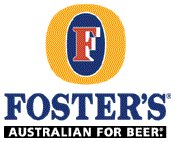Divided TTAB Panel Finds "J.W. Foster" Not Merely a Surname
TTAB Judge Drost, writing for the panel majority, has once again penned a dubious decision regarding Section 2(e)(4) of the Trademark Act, reversing the PTO's surname refusal of the mark J.W. FOSTER for footwear, headwear, and clothing. In re Reebok Int'l Ltd., Serial No. 78271326 (October 26, 2005) [not citable].
 In July 2004, Judge Drost wrote the opinion in In re Isabella Fiore LLC, 75 USPQ2d 1564 (TTAB 2004), a citable decision applying the "doctrine of foreign equivalents" in the surname context, and holding that the mark FIORE is not primarily merely a surname because "fiore" means flower in Italian. [See TTABlog discussion here.] That decision was notorious for its lack of consideration of the purpose of Section 2(e)(4). Here, Judge Drost has done it again, eschewing any real analysis of Section 2(e)(4) while reversing the PTO's surname refusal.
Although the PTO provided 100,000 listings for the surname Foster in the Lexis-Nexis Finder database, and although two brothers named Joseph William Foster and Jeffrey William Foster founded Reebok, the majority correctly reasoned that FOSTER is a common word in the English language, meaning "to bring up or nourish" and, as such, the word "foster" by itself is not primarily merely a surname. [TTABlog note: I understand that "Foster's" is Australian for beer.]
In July 2004, Judge Drost wrote the opinion in In re Isabella Fiore LLC, 75 USPQ2d 1564 (TTAB 2004), a citable decision applying the "doctrine of foreign equivalents" in the surname context, and holding that the mark FIORE is not primarily merely a surname because "fiore" means flower in Italian. [See TTABlog discussion here.] That decision was notorious for its lack of consideration of the purpose of Section 2(e)(4). Here, Judge Drost has done it again, eschewing any real analysis of Section 2(e)(4) while reversing the PTO's surname refusal.
Although the PTO provided 100,000 listings for the surname Foster in the Lexis-Nexis Finder database, and although two brothers named Joseph William Foster and Jeffrey William Foster founded Reebok, the majority correctly reasoned that FOSTER is a common word in the English language, meaning "to bring up or nourish" and, as such, the word "foster" by itself is not primarily merely a surname. [TTABlog note: I understand that "Foster's" is Australian for beer.]
 The Board then contemplated whether the addition of J.W. to FOSTER results in a mark that is primarily merely a surname. It noted prior decisions in which the addition of an initial or initials to a word that is primarily a surname (i.e., that has no other common meaning or significance) does not remove it from the surname category. (For example, J.C. Higgins.)
The Board then contemplated whether the addition of J.W. to FOSTER results in a mark that is primarily merely a surname. It noted prior decisions in which the addition of an initial or initials to a word that is primarily a surname (i.e., that has no other common meaning or significance) does not remove it from the surname category. (For example, J.C. Higgins.)
"In the present case, we have the flip side of the coin.... 'Foster' is not a term that has no other significance. Quite simply, it has other significant non-surname meanings. These meanings are not obscure nor are they meanings that are derived from the surname. Therefore, when we consider the term as a whole, we cannot hold that FOSTER is primarily merely a surname, and adding the letters 'J.W' to it does not change it into a surname."In dissent, Judge Holtzman pointed out that the mark at issue must be considered in its entirety, and that when J.W. is added to FOSTER, the word FOSTER "does not have any other meaning; it would be perceived as a surname."
"The majority ... simply concluded that because FOSTER, itself, is not primarily merely a surname, adding initials to FOSTER does not change it into a surname. This analyis clearly does not take into account the effect of the initials added to FOSTER or the impact of the combination on the purchasing public."Noting prior holdings that "the addition of initials to a surname reinforces the surname significance of the term" [N. PIQUET, M.E. MULLER, J. TAVERNINI, J.C. HIGGINS, and S. SEIDENBERG & CO.'S], Judge Holtzman urged that when J.W. is combined with FOSTER, "[t]he ordinary dictionary meaning of FOSTER would be lost on purchasers in the context of the mark as a whole."
"While the majority's position might be more persuasive if applicant were seeking registration of J.W. FOSTER for foster care services or some other goods or services relating to the ordinary language meanings of "foster," it is not believable that purchasers would think of any of those dictionary meanings when they view the mark on applicant's shoes and coveralls."TTABlog comment: Judge Drost's logic is basically flawed: Just because the addition of initials to a word that is primarily merely a surname does not change the overall surname significance of the combined term, that does not mean, in turn, that the addition of initials to a word that is not primarily a surname could not change its primary significance into that of a surname. It seems to me that the Board needs to take a course, en banc, called "Surnames 101." Text Copyright John L. Welch 2005.




0 Comments:
Post a Comment
<< Home